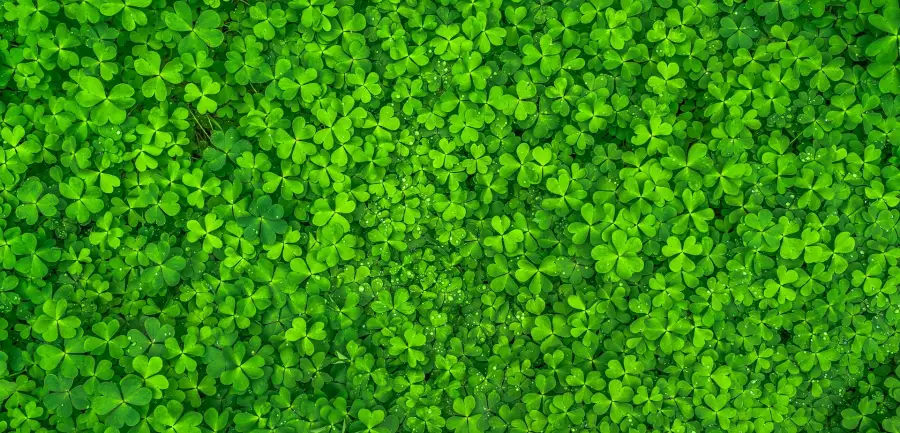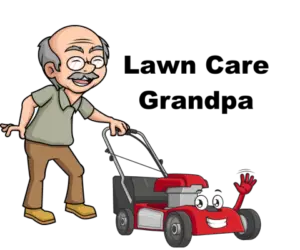Staying on top of a weed problem often requires one to pull out all the stops. Chemicals, for better or for worse, are among the most effective of these stops, and they have varied ways of killing off most weed varieties.
The herbicide 2,4-D will kill clover in most any lawn or turf without harming the other grasses and plant life. It uses Dichlorophenoxyacetic acid to attack broadleaf plants like clover while not affecting other plants in the process. It is effective at eradicating clover from yards.
Our focus today is on a plant whose infestation is anything but good luck for farmers and landscapers. That’s right, we’re talking about clover! Join in as we discuss this weed’s basic characteristics before looking at the best herbicides to use when trying to get rid of it.
Let’s get started.

Contents
What Is The Best Herbicide To Kill Clover?
“Clover” is actually an umbrella term for plants belonging to the genus Trifolium, which is in the Fabaceae (or legume) family. “Trifolium” translates to “three-leaf” in English.
To kill most of the known clover varieties there are two herbicides that can best do the job. One is 2,4-D and the other is Ortho’s Weed B Gon. 2,4-D uses Dichlorophenoxyacetic acid while Weed B Gon relies on triclopyr and triethylamine salt to kill clover and leave the other plants untouched.
There are hundreds of clover subspecies and other plants colloquially known as clovers, without actually belonging to Trifolium.
The Irish Shamrock aka lesser clover (aka Trifolium dubium) is undoubtedly the most famous “species”. This particular plant’s exact classification is a point of great contention in the botanical community. However, Robert Holland and James Britten established that dubium was the most logical appointment because it was a best-seller during St. Patrick’s Day celebrations.
Clovers are hardy runner plants that were originally planted for all-purpose livestock feed. They don’t require a lot of watering yet they also spread rapidly.
Clovers are also used for landscape aesthetics and culinary purposes. The blooms are not only a pleasant sight but they can also be used to make teas and other health-boosting concoctions. The plant is also beneficial to farmers who practice crop rotation as it can help lock nutrients in place in the soil.
Finally, certain types of clover, such as the aforementioned Shamrock, have symbolic purposes for certain traditions and festivals. This symbolism can also extend to certain superstitions such as the four-leaf clover’s association with luck.
However, clovers are not always a welcome sight in many situations for several reasons.
You see, some of clover’s characteristics (hardiness, rapid growth) also make it a nuisance and, ultimately, a weed.
Farmers may hate them because they compete with crops for nutrients in the soil. This is not much of a problem in very rich soils, but very rich soils are rare. Most farmers already spend fortunes on fertilizers to compensate for deficient soils, so accommodating freeloading clovers is the last thing on the agenda.
Landscapers dislike clovers because their flowers disrupt a lawn’s “carpet effect”. If a member of your household suffers from bee allergies, you might want to avoid planting clover too.
Use of landscape fabric and good old plucking are just a few of the ways to deal with clover plants.
Herbicides are another, and we’ve identified a few notable solutions.
To see other articles you will enjoy…
- Will Bleach Kill Grass And Weeds In Your Lawn And Walkways?
- Mixing Tips For Lesco Prosecutor Herbicide And What It Is
- Does Mowing Too Often Kill Grass? (Experts Reveal)
What Does Herbicide 2,4-D kill?
The first is our titular herbicide, 2,4-D.
The name 2,4 D is actually short for 2,4-Dichlorophenoxyacetic acid. It is a general-purpose broadleaf herbicide that, as the name suggests, kills most types of broadleaf plants, including most varieties of clover.
The best part? The herbicide doesn’t affect most species of lawn grass unless it is applied repeatedly.
We recommend that you head on to Amazon and have a look at Southern Ag’s 2,4-D Amine Weed Killer. This broadleaf weed controller is specifically engineered to kill weeds in grassy areas as neatly and efficiently as possible. It is recommended for use in pastures and rangeland, parks, golf courses, campuses, and private lawns.
The herbicide doesn’t harm corn and several other small grain crops, making it a key resource for farmers. However, it must be used very sparingly, if at all, in the case of vegetable gardens. You will have to consult the included booklet for plants that may be affected.
2,4-D Amine Weed Killer is a formula that is made up of 46.3% Dimethylamine salt of 2,4-D-Dichlorophenoxyacetic acid and 53.7% other ingredients. As such, a little goes a long way. 1-4 pints is what it takes to tackle an acre’s worth of weeds.
Specific mixing and spraying directions vary depending on the target plant and conditions. That said, Southern Ag 2,4-D Amine Weed Killer has a general dilution of 2-3 tablespoons in 3-5 gallons of water. This dilution should cover 1,000 square feet.
Spraying is the best application, and this herbicide can be applied either before or after weed emergence. However, if the area you intend to work on has Zoysia, centipede grass, or St. Augustine grass, you should avoid the use of 2,4-D. The herbicide also harms these types of grass, so in such scenarios, you should look for an herbicide that is friendlier to them.
2,4-D Alternative Herbicide For Clover
Another option is Ortho Weed B Gon from Arett Sales.
This concentrate formula is based on triclopyr and triethylamine salt (8%) that causes chelation in weed roots. Much like 2,4-D, Weed B Gon won’t harm your lawn in the process, which is nice.
The herbicide is the go-to solution for oxalis, chickweed, and clover in home gardens. Its reduced potency compared to 2,4-D is also good for the environment and makes it more pet-friendly.
Two tablespoons of Weed B Gon in a gallon of water should do the trick for 200 square feet with a traditional sprayer. You can also hook up the Ortho Dial ‘N Spray Hose-End sprayer to the herbicide bottle and run your hose through the sprayer. This creates a real-time dilution as you spray.
You also get a detailed instruction booklet. Instructions go over application, weed types, as well as safety protocols.
How Long Does It Take For 2,4-D To Work On Clover?
If this herbicide is one of the best to kill clover, the next logical question would be, “How long does it take for 2,4-D to work?”
Complete eradication of clover takes from 12 to 16 days. This does not mean that stunted growth and reduced visibility will not happen sooner. Browning of leaves, halted growth, and diminished clover presence in a lawn begins within 48 to 72 hours of application.
Of course, this all depends on proper application with coverage, weather, and correct temperature ranges. Applying in colder than recommended temperatures can even nullify the results completely.
The same can be said with wet conditions. The results will be greatly reduced or at least take much longer is rain occurs too closely to the time of application.
What Will Kill Weeds But Not Clover?
Now, it’s important to note that not every herbicide will prove effective against clover. To that emphasize that point, we’ve identified some herbicides that will kill most weeds but have no impact on clover.
One such herbicide is Quali-Pro Prodiamine, a pre-emergent herbicide that is often used to deal with weeds like henbit, chickweed, foxtail, and goosegrass. The formula is made up of 65% prodiamine and is ideal for use in nurseries, lawns, and other landscapes affected by the aforementioned weeds.
“Pre-emergent” simply means that the herbicide targets weed seeds and disrupts the germination process. The chemical will not affect established weeds.
Therefore, if you are looking to grow clovers with the aid of an herbicide that serves as a great mixing aid with most fertilizers, look no further than Quali-pro’s solution.
Other clover-friendly herbicides include sethoxydim-based formulas, clethodim, and slow-acting 2,4-DB.
The Final Touches On 2,4-D Killing Clover…
The herbicide 2,4-D is a good option for taking the clover out of your lawn while not harming the other grasses and plants. It is easy to apply and will not affect your lawn adversely unless it is abused and repeatedly applied against labeling recommendations.
The active ingredients in it have been specifically designed to only attack broadleaf plants like clover, and that makes your job much easier.
More from LawncareGrandpa.com…
- Glystar Plus Mix Ratio (Explained)
- How To Identify Wide Blade Grass And What To Do About It
- How To Deal With A Dandelion Infestation
References
https://www.ehow.com/info_10043735_herbicide-not-kill-clover.html
https://homeguides.sfgate.com/herbicides-kill-clover-lawns-25543.html

